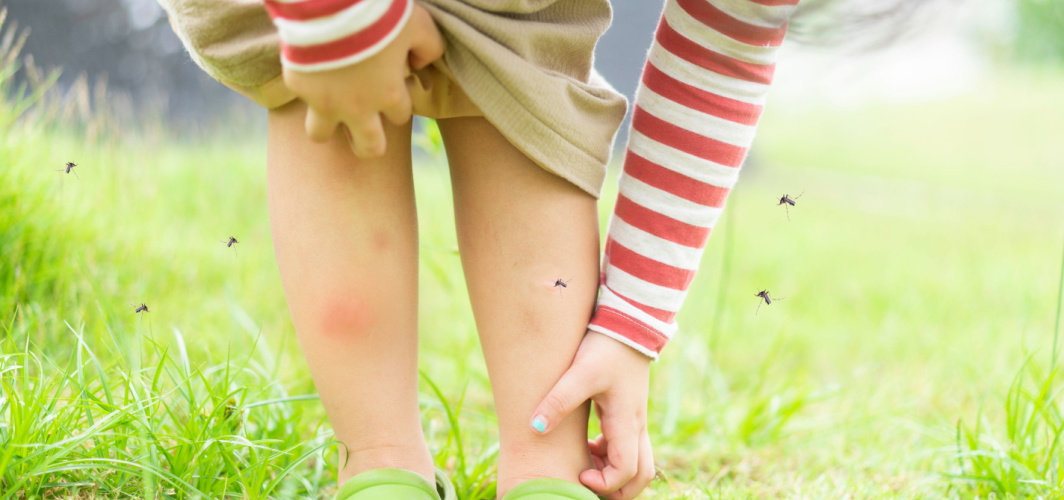- Home
- Blog
- General Health
Pneumonia Outbreak In Kids: Identify The Signs
General Health
Pneumonia Outbreak In Kids: Identify The Signs
By Apollo Pharmacy, Published on- 07 December 2023, Updated on -26 August 2024
Share this article
0
0 like

Pneumonia is a serious concern, especially when it affects our little ones. As parents and caregivers, identifying the signs and symptoms of respiratory illness in children is crucial for early intervention and effective treatment.
Lately, numerous countries around the world have experienced an alarming surge in a newly identified bacterial pneumonia, known as White Lung Syndrome. This respiratory ailment primarily targets children aged three to eight. Although the exact origin of this pneumonia outbreak is still being probed, specialists speculate a potential connection to an emerging variant of Mycoplasma pneumoniae, a common microbe known for causing respiratory infections. Let us learn about the signs that may indicate pneumonia in kids.
What are the Signs of Pneumonia in Kids?
Pneumonia is an inflammatory condition that affects the air sacs in the lungs. In children, it can be caused by various factors, including bacteria, viruses, or fungi. Here are some of the signs of pneumonia in kids:
- Persistent Cough: A prolonged cough, especially when accompanied by mucus or phlegm, can be a warning sign.
- Difficulty Breathing: Keep an eye out for rapid or laboured breathing, as well as flaring nostrils.
- Fever: High or persistent fever may indicate an underlying infection, including pneumonia.
- Chest Pain: Children may express chest discomfort or pain, which is an important symptom to note.
- Fatigue: Pneumonia can cause fatigue and lethargy in children, affecting their usual activity levels.
- Irritability: Increased fussiness or irritability may be a response to feeling unwell.
How Does Pneumonia Infection Spread?
Pneumonia is transmitted through the inhalation of respiratory secretions (such as saliva or mucus) containing disease-causing microbes. Individuals with weakened immune systems, young children, and the elderly are particularly vulnerable to contracting pneumonia. Many children carry the bacteria as carriers in their noses or throats without causing infection. However, factors that may ease infection spread include:
- Winter & spring season
- Living in crowded spaces
- Pre-existing upper respiratory tract infections
When to Seek Medical Attention?
It's advisable to see a healthcare professional immediately if you or your child experiences the following:
- Bluish Skin Tone: In severe cases, a bluish tint around the lips or fingertips could indicate a lack of oxygen.
- Dehydration: Watch for signs of dehydration, such as dry mouth, sunken eyes, or reduced urine output.
What are the Risk Factors of Pneumonia in Kids?
Several factors can increase the risk of developing pneumonia, some of which include:
- Age: Infants and young children, as well as older adults, are more vulnerable to pneumonia.
- Weakened Immune System: Individuals with a weakened immune system due to conditions such as HIV/AIDS, cancer, or organ transplantation, or those undergoing certain medical treatments like chemotherapy, are at higher risk.
- Chronic Medical Conditions: Chronic diseases such as asthma, chronic obstructive pulmonary disease (COPD), diabetes, heart disease, and lung diseases can increase the risk of pneumonia.
- Smoking: Tobacco smoke damages the lungs and impairs the body's ability to fight off infections, making smokers more susceptible to pneumonia.
- Malnutrition: Poor nutrition can weaken the immune system, making individuals more susceptible to infections, including pneumonia.
- Hospitalization: People recently hospitalized, especially for other respiratory illnesses, are at an increased risk of developing hospital-acquired pneumonia.
- Respiratory Tract Infections: Having a recent respiratory infection, such as the flu or a cold, increases the risk of developing pneumonia.
- Aspiration: Inhaling food, drink, or saliva into the lungs can lead to aspiration pneumonia, particularly in individuals with swallowing difficulties.
- Living in Crowded Conditions: People living in crowded or communal settings, such as dormitories or long-term care facilities, may be more exposed to respiratory infections.
- Exposure to Environmental Factors: Long-term exposure to environmental pollutants, such as air pollution or certain chemicals, can increase the risk of pneumonia.
- Alcohol or Drug Abuse: Excessive alcohol consumption or drug abuse can weaken the immune system, making individuals more susceptible to infections.
- Underlying Respiratory Conditions: Conditions like bronchiectasis or interstitial lung disease can increase the risk of pneumonia.
How to Prevent Pneumonia in Kids?
Being vigilant and proactive is key when it comes to pneumonia outbreaks among kids. By familiarizing yourself with the signs and symptoms, you can take prompt action and seek medical attention when needed. Some of these measures include:
- Get routine immunizations including pertussis, measles, and influenza.
- For infant nutrition exclusive breastfeeding is recommended for the initial 6 months.
- Ensuring safe drinking water by boiling water before drinking.
- Wash hands frequently with soap and water.
- Improving indoor air quality by using air purifiers.
- Recognize the dangerous signs of pneumonia.
With appropriate measures, you can keep your child safe and protect them from infectious illnesses like pneumonia. If your child is having trouble breathing or experiences any of the aforementioned signs, consult a child specialist/ paediatrician. You may also try nebulisers to ease their breathing.
Services
General Health
Frequently asked questions
Common signs of pneumonia in children include a persistent cough, difficulty breathing, fever, chest pain, fatigue, and behavioural changes like irritability. Recognizing these symptoms early is crucial for timely intervention.
While a regular cough may stay for a few days, a pneumonia-related cough is often persistent and may be accompanied by mucus or phlegm. If your child's cough lasts for an extended period or worsens, it's important to consult a healthcare professional.
Yes, children under the age of 2 are at a higher risk of developing pneumonia. Parents and caregivers of infants and toddlers need to be particularly vigilant and observant of any signs or symptoms.
Seek medical attention if your child exhibits signs such as rapid or laboured breathing, a persistent high fever, chest pain, or any bluish discolouration around the lips or fingertips. Prompt medical evaluation is crucial for an accurate diagnosis and timely treatment.
To reduce the risk of pneumonia, ensure your child is up-to-date on vaccinations, especially those that protect against pneumonia-causing bacteria and viruses. Additionally, create a healthy environment by avoiding exposure to smoke and minimizing contact with individuals who are sick. If your child has underlying health conditions, consult with a healthcare professional for personalized preventive measures.
Leave Comment
Services
Recommended for you
.jpg?tr=q-85)
General Health
Festone Combi Kit Tablet: Action, Dosage, Side Effects
Festone Combi Kit Tablet is a medical abortion kit containing Mifepristone and Misoprostol, used for pregnancy termination. Learn about its usage, side effects, precautions, and necessary follow-ups to ensure a safe and complete abortion.

General Health
Best Ayurvedic Solutions For Skin Pigmentation
Discover the best Ayurvedic solutions for skin pigmentation. Explore natural remedies and herbal treatments that help reduce dark spots, even skin tone, and restore your skin’s natural radiance.

General Health
What Are The Symptoms Of Dengue?
Learn about the symptoms, prevention strategies, and treatment options for dengue fever. Stay informed and protect yourself from this mosquito-borne viral disease.
Subscribe
Sign up for our free Health Library Daily Newsletter
Get doctor-approved health tips, news, and more.

